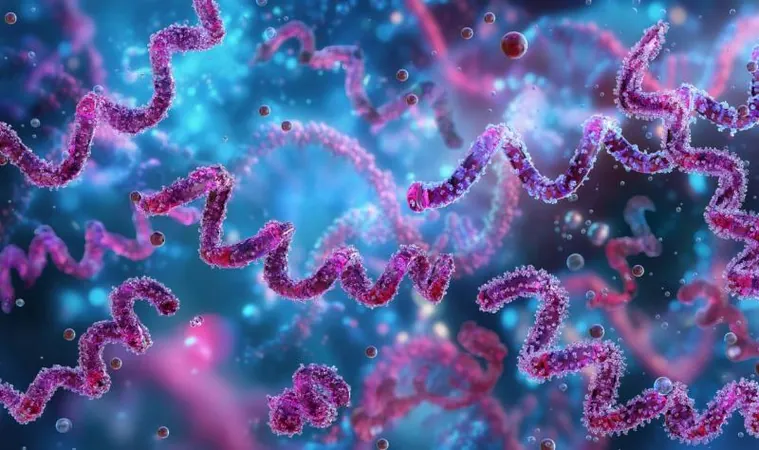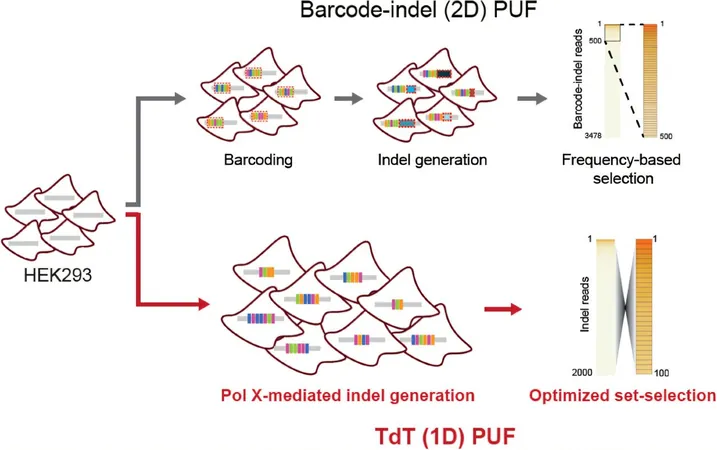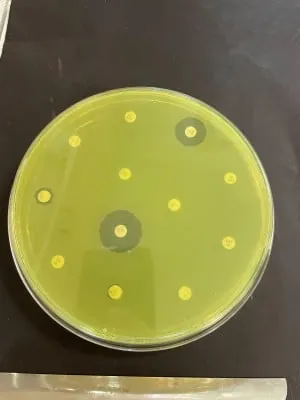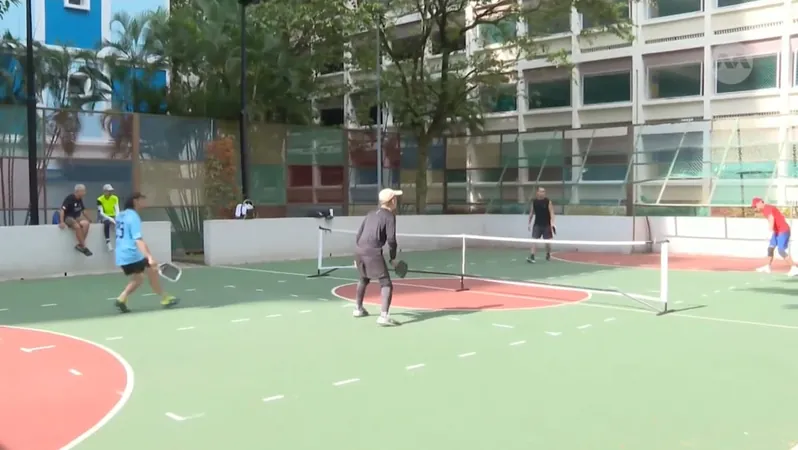
Revolutionary 1-Dose Antibiotic Treatment Shakes Up Syphilis Care
2025-09-03
Author: Wei
A Game-Changer in Syphilis Treatment
In a groundbreaking study published in the New England Journal of Medicine, researchers have revealed that a single injection of benzathine penicillin G (BPG) is just as effective in treating early syphilis as the traditional three-dose regimen. This revelation arrives at a critical moment, as the U.S. faces significant shortages of BPG, the gold-standard treatment for early syphilis since the 1950s.
Syphilis Rates on the Rise
Syphilis, caused by the bacterium Treponema pallidum, has reached alarming levels, with around 209,000 infections reported in the U.S. alone in 2023. Although the increase in cases slowed this year, syphilis incidence has surged by 61% since 2019. Treatment shortages have further complicated efforts to control this serious sexually transmitted infection.
Simplifying Treatment Saves Lives
The study, spearheaded by researchers from the University of Alabama at Birmingham and funded by the National Institute of Allergy and Infectious Diseases, highlights potential benefits in simplifying treatment protocols. Dr. Carolyn Deal from NIAID emphasized, "This new evidence supports the idea that a single dose could not only simplify patient care but also enhance adherence to follow-up, especially as syphilis rates remain disturbingly high."
The Study Details: Single vs. Multiple Doses
In the multicenter trial, 249 participants with early syphilis, including individuals with HIV, were assigned either a one-time injection of 2.4 million units of BPG or a series of three injections given weekly. The primary goal was to evaluate serologic response at six months. Results showed a 76% serologic response in the single-dose group and 70% in the three-dose group—indicating that the one-dose treatment is just as effective.
Notable Outcomes for HIV Patients
The findings are particularly reassuring for patients with HIV, a demographic often treated with multiple doses out of concern for efficacy. In the trial, 76% of participants with HIV responded to the one-dose treatment, compared to 71% in the multiple-dose group, showcasing the single dose's effectiveness even in higher-risk populations.
Fewer Injections, Fewer Problems
Participants reported injection-site pain and tenderness, with 76% in the single-dose group and 85% in the three-dose group experiencing discomfort. Notably, some patients in the three-dose group dropped out due to the cumbersome nature of their treatment. This underscores the potential for increased patient compliance with a simplified regimen.
Looking Ahead: A Hopeful Perspective
Lead investigator Dr. Edward Hook expressed hope that these promising results will pave the way for advancements in syphilis prevention and diagnosis. In a complementary editorial, CDC experts reassured clinicians that a single dose is sufficient for treating early syphilis, though questions remain regarding treatment for later stages.
This transformative approach stands to change the landscape of syphilis treatment, potentially saving lives while simplifying the care process.




 Brasil (PT)
Brasil (PT)
 Canada (EN)
Canada (EN)
 Chile (ES)
Chile (ES)
 Česko (CS)
Česko (CS)
 대한민국 (KO)
대한민국 (KO)
 España (ES)
España (ES)
 France (FR)
France (FR)
 Hong Kong (EN)
Hong Kong (EN)
 Italia (IT)
Italia (IT)
 日本 (JA)
日本 (JA)
 Magyarország (HU)
Magyarország (HU)
 Norge (NO)
Norge (NO)
 Polska (PL)
Polska (PL)
 Schweiz (DE)
Schweiz (DE)
 Singapore (EN)
Singapore (EN)
 Sverige (SV)
Sverige (SV)
 Suomi (FI)
Suomi (FI)
 Türkiye (TR)
Türkiye (TR)
 الإمارات العربية المتحدة (AR)
الإمارات العربية المتحدة (AR)